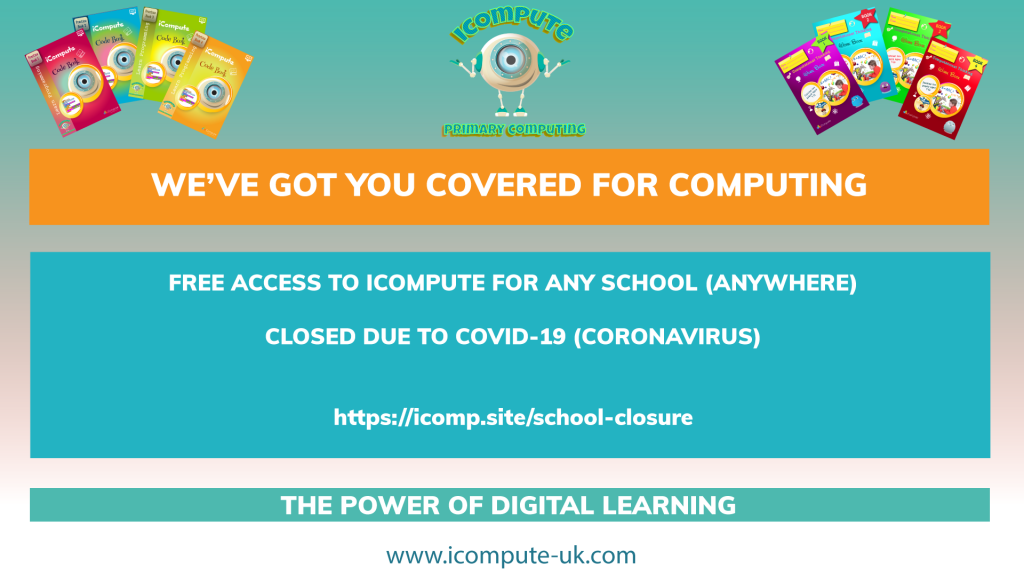Computing – Including Pupils with Special Educational Needs & Disabilities (SEND)
 At iCompute we passionately believe that Computing has the potential to empower pupils with SEND and transform their lives. With the right blend of progressive, imaginative planning, exposure to a broad range of tools and technologies and comprehensive support it is possible that all children can fulfill their potential – in computing and throughout the curriculum.
At iCompute we passionately believe that Computing has the potential to empower pupils with SEND and transform their lives. With the right blend of progressive, imaginative planning, exposure to a broad range of tools and technologies and comprehensive support it is possible that all children can fulfill their potential – in computing and throughout the curriculum.
Computing and Information Technology are essential tools for inclusion. They enable children with SEND, whatever their needs, to use technology purposefully in ways that make the wider curriculum accessible, empower those with communication difficulties to engage with others and to fully include everyone in activities and learning.
iCompute offers children with SEND varied and engaging ways to communicate, collaborate, express ideas and demonstrate success. From making and editing video/audio footage, programming animations, games and apps to creating rich web content – all pupils have an opportunity to participate, be challenged, learn and progress.
iCompute supports children with SEND by providing:
- Familiarity – Lessons follow similar patterns and all involve aspects that appeal to various learning styles
- Participation – Activities involve group or paired working with valuable roles for each member which encourages peer learning
- Physical Activities – Unplugged activities (computing without a computer) makes it much easier to explore the concepts involved and to ask questions. This can be really beneficial to learners with communication or learning difficulties who find abstract concepts difficult and require a multimodal approach. Unplugged activities can include a range of sensory approaches, from physical movement to music, and from manipulating objects to drawing pictures.Unplugged activities enable the use of familiar contexts to teach new concepts and knowledge. This approach helps to reduce cognitive load and has the additional benefit of being able to set the context in accordance with learner’s specific interests; which may motivate learning.Programming physical devices (E.g. Bee-bot) helps pupils learn to program by experiencing their code ‘come to life’ in multiple ways. Devices with outputs that include sound, movement and light ensure learners with visual or auditory impairment are included.
- Progression – Tasks are structured into smaller steps that build toward achieving the overall objective; which form part of progressive units of work providing full coverage of the National Curriculum for Computing at Key Stage 1 and Key Stage 2
- Flexibility – All units have Core, Easier, Harder activities as well as a number of Extension/Enrichment ideas allowing teachers to cater for the individual needs of their pupils
- Range – A range of teaching approaches and materials enable pupils to access learning. E.g. colourful support materials; engaging worksheets; video screencasts; imaginative unplugged activities and interactive online activities support pupil’s learning enabling them to achieve
- Assessment – Comprehensive assessment toolkit supported by interactive pupil progress tracker spreadsheets enable teachers to accurately assess progress and set targets. Assessment starts from P1 to Year 6 (P-Scales based on revised scales for computing*)
- Variety – A wealth of free software and online tools allow SEND pupils to demonstrate skills and progress, express ideas, improve digital literacy and boost self-confidence
iCompute supports teachers of children with SEND with:
- Computing for SEND – Guidance for Teachers
- Activity bank for developing Computational Thinking with SEND pupils
- Online SEND Computing Activities
- Pupil Progress Trackers from P1-P8*
*The revised version of the P Scales for Computing reflects the content of the Computing Programs of Study, with statements for Digital Literacy, Information Technology and Computer Science. The Computer Science statements provide a guide for what computational thinking and programming looks like for pupils working at pre-National Curriculum levels
To find out more about how our acclaimed primary computing schemes of work engage, include and challenge all pupils please visit www.icompute-uk.com





